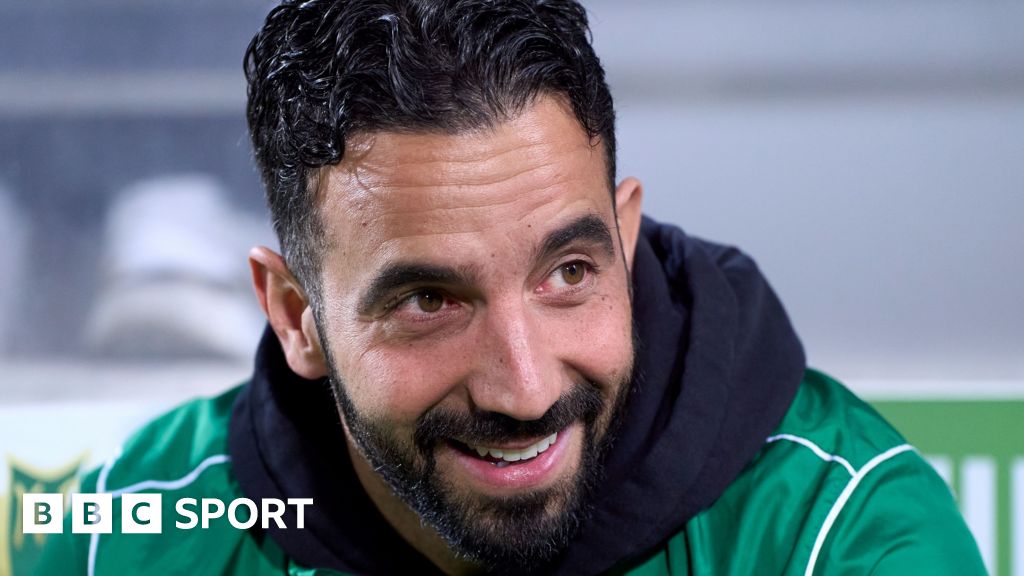Football
Ruben Amorim: Why Sporting Lisbon manager looks set to join elite

Born in Lisbon, he was a creative midfielder who spent most of his playing career with Belenenses and Benfica, learning much from his former coach at both clubs, Jorge Jesus.
What he learnt above everything else was the importance of the collective and the importance of details; working hard in training, having conviction in your ideas, leading with authority.
Amorim watched closely the benefits of Jesus’ defensive process, even though he felt if he ever became a coach that his teams would be mostly remembered for their attack.
His own family education – especially from his mum, an accountant who did not stop working even when he was succeeding at Benfica – taught him how crucial it was to be a key part of the overall team, rather than being a star individual.
Many close to him were surprised that someone who seemed so content with life would take the coaching badges in order to stay in football. His coaching career began with Casa Pia, then a third-tier club, where it almost ended as soon as it had begun.
He lost his first two games and, with his pride hurt and doubts setting in, he announced if he lost the third game he would quit. In the next match he changed the system and played a back three for the first time.
The system worked and from then on he remained unbeaten at the club. He also felt he had found the formation that allowed him to produce the football he wanted – one invariably linked to the spectacle for the fans.
From there he moved on to Braga’s B team in the second division. A great run saw him become first-team manager, where he enjoyed an unbeaten spell over three months.
He earned his first major managerial honour when Braga won the Taca de Liga, Portugal’s League Cup.
Amorim is like a sponge. After training and meetings, he likes to spend a couple of hours in his home office watching games, reading about football and managers, organising zooms with people he can learn new things from.
When he needs to come out of the football bubble he goes to the cinema, to an exhibition, or just walks around town. There is an air of the eternal student about Amorim, and a touch of normality and a humble demeanour about him.
On WhatsApp his first message might not be, ‘what was the score in a Premier League game?’, but ‘how is your mum?’ if he has heard she is not well.
When Sporting came knocking they were told they would have to pay Braga 10m euros to terminate his contract – a lot of money for a coach in Portugal.
The following season, Sporting won their first league title in 19 years as well as Portugal’s League Cup, repeating his success of the previous year with Braga.
Should he now move away from Sporting, the Lisbon club will at least be able to console themselves with the knowledge that whoever wants to take him is going to have to pay the club at least a big chunk of his 20m euros (£17m) release clause.










